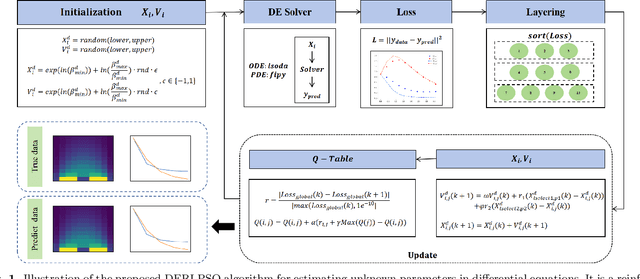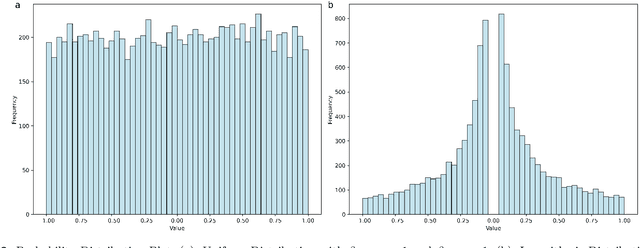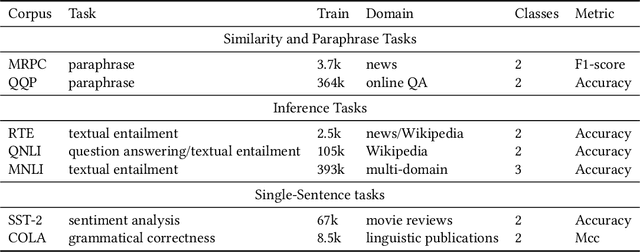Lijuan Jia
Estimating unknown parameters in differential equations with a reinforcement learning based PSO method
Nov 13, 2024



Abstract:Differential equations offer a foundational yet powerful framework for modeling interactions within complex dynamic systems and are widely applied across numerous scientific fields. One common challenge in this area is estimating the unknown parameters of these dynamic relationships. However, traditional numerical optimization methods rely on the selection of initial parameter values, making them prone to local optima. Meanwhile, deep learning and Bayesian methods require training models on specific differential equations, resulting in poor versatility. This paper reformulates the parameter estimation problem of differential equations as an optimization problem by introducing the concept of particles from the particle swarm optimization algorithm. Building on reinforcement learning-based particle swarm optimization (RLLPSO), this paper proposes a novel method, DERLPSO, for estimating unknown parameters of differential equations. We compared its performance on three typical ordinary differential equations with the state-of-the-art methods, including the RLLPSO algorithm, traditional numerical methods, deep learning approaches, and Bayesian methods. The experimental results demonstrate that our DERLPSO consistently outperforms other methods in terms of performance, achieving an average Mean Square Error of 1.13e-05, which reduces the error by approximately 4 orders of magnitude compared to other methods. Apart from ordinary differential equations, our DERLPSO also show great promise for estimating unknown parameters of partial differential equations. The DERLPSO method proposed in this paper has high accuracy, is independent of initial parameter values, and possesses strong versatility and stability. This work provides new insights into unknown parameter estimation for differential equations.
Simple Contrastive Representation Adversarial Learning for NLP Tasks
Dec 02, 2021



Abstract:Self-supervised learning approach like contrastive learning is attached great attention in natural language processing. It uses pairs of training data augmentations to build a classification task for an encoder with well representation ability. However, the construction of learning pairs over contrastive learning is much harder in NLP tasks. Previous works generate word-level changes to form pairs, but small transforms may cause notable changes on the meaning of sentences as the discrete and sparse nature of natural language. In this paper, adversarial training is performed to generate challenging and harder learning adversarial examples over the embedding space of NLP as learning pairs. Using contrastive learning improves the generalization ability of adversarial training because contrastive loss can uniform the sample distribution. And at the same time, adversarial training also enhances the robustness of contrastive learning. Two novel frameworks, supervised contrastive adversarial learning (SCAL) and unsupervised SCAL (USCAL), are proposed, which yields learning pairs by utilizing the adversarial training for contrastive learning. The label-based loss of supervised tasks is exploited to generate adversarial examples while unsupervised tasks bring contrastive loss. To validate the effectiveness of the proposed framework, we employ it to Transformer-based models for natural language understanding, sentence semantic textual similarity and adversarial learning tasks. Experimental results on GLUE benchmark tasks show that our fine-tuned supervised method outperforms BERT$_{base}$ over 1.75\%. We also evaluate our unsupervised method on semantic textual similarity (STS) tasks, and our method gets 77.29\% with BERT$_{base}$. The robustness of our approach conducts state-of-the-art results under multiple adversarial datasets on NLI tasks.
 Add to Chrome
Add to Chrome Add to Firefox
Add to Firefox Add to Edge
Add to Edge